19+ Best Books for Starting a Business of All Time

Have you ever, at least once, dreamed of running your own business? If the answer is yes, what makes a business successful? Some might think of a dedicated mentor, money, or a good startup plan. These factors can be right. However, the key to opening your success door is nothing more than knowledge. Reading books is always the shortest path to gaining knowledge from the best people. Especially if you want to become the CEO of your own business in the future, books are where you can find everything you need to know about taking your first steps.
So we compiled a list of 15 most inspiring books covering every aspect of starting a business with new perspectives and getting you ready to make your dreams come true.
1. The Lean Startup by Eric Reis
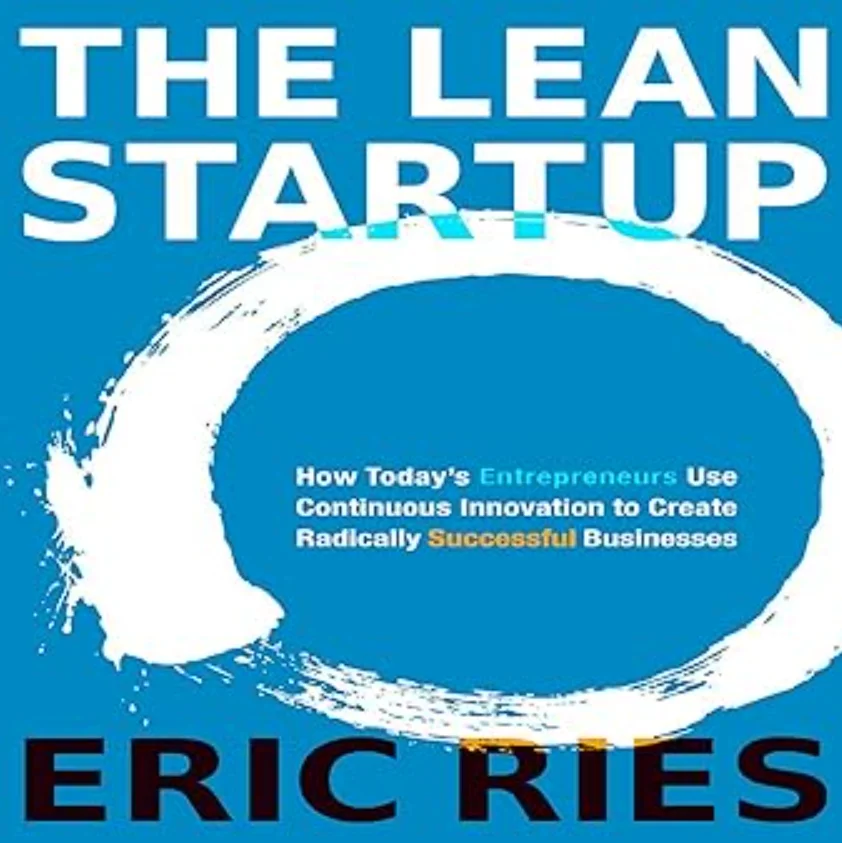
- Rating: 4.5/5 (16,644 ratings)
The Lean Startup written by Eric Ries, is essential reading for entrepreneurs. In this book, Eric Ries delves into the reasons behind the failure of most startups and offers effective ways to avoid such pitfalls in the early stages of a business.
This book guides entrepreneurs on transforming their startup ideas into sustainable enterprises. Ries’s comprehensive approach helps in developing products or services that customers desire and are willing to purchase. He explains how the most successful startups leverage human creativity while maintaining low costs. This book also emphasizes rapid experimentation and accurately measures success by removing unnecessary vanity metrics and adapting to customer needs.
Moreover, Ries’s book presents a continuous vision-testing framework and describes innovative techniques for adapting to changes. Therefore, the Lean Startup is indispensable for anyone seeking to overcome the common traps that lead to startup failures.
2. Zero to One by Peter Thiel and Blake Masters
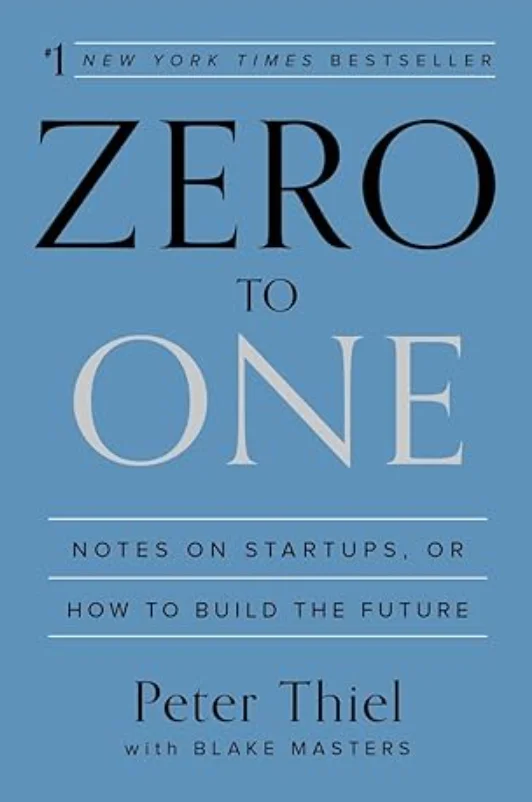
- Rating: 4.5/5 (36,646 ratings)
Zero to One is a book about innovative thinking and entrepreneurship. The content is based on a series of essays recorded from Thiel’s 2012 startup lecture.
The book offers valuable tactics for breaking free from conventional thinking by posing specific questions that help uncover untapped value in unexpected places. It serves as a primer on innovation, exploring how entrepreneurs can develop new ideas through creative thinking. This makes it a great resource for business professionals looking for a profitable niche. Atlantic writer Derek Thompson has cited “Zero to One” as potentially the best business book he has ever read.
3. The Mom Test by Rob Fitzpatrick
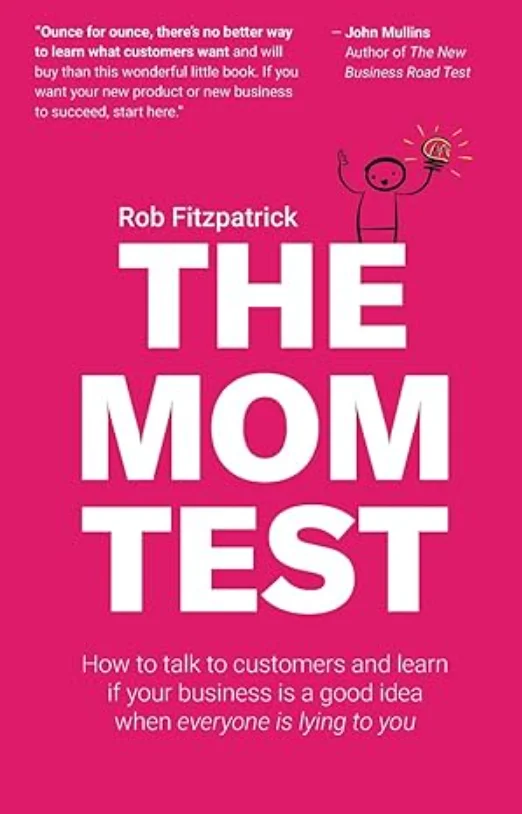
- Rating: 4.7/5 (3,349 ratings)
The Mom Test by Rob Fitzpatrick is a practical guide that helps business owners obtain honest and useful feedback from customers. The book emphasizes the importance of asking the right questions to avoid biased responses.
Fitzpatrick provides a framework for conducting customer interviews that yield valuable insights. It focuses on understanding customers’ real problems and needs rather than seeking confirmation or approval from others that your ideas are correct. Fitzpatrick also emphasizes the importance of listening more and talking less during these interviews, allowing customers to share their true thoughts and experiences.
Therefore, this book will help you test and confirm that there is a real demand for your product or service in the market and ensure you’re on the right track.
4. The $100 Startup by Chris Guillebeau
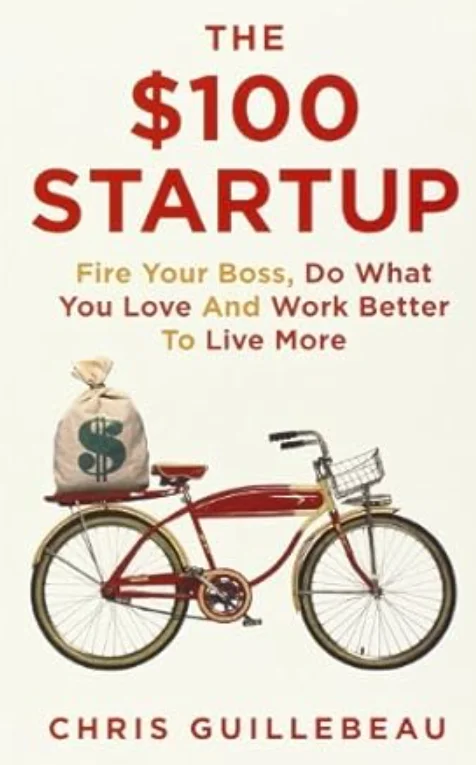
- Rating: 4.5/5 ( 7,305 ratings)
The aim of The $100 Startup is to help individuals seeking to start a business with a minimal capital investment of $100 or less. Author Chris Guillebeau conducted an extensive study of approximately 1,500 entrepreneurs who have generated earnings of $50,000 or more with very modest initial investments. He shares 50 case studies to assist aspiring entrepreneurs in combining their passion and skills to escape from the conventional 9-5 employment.
The first lesson underscores the importance of not depleting your savings on acquiring new skills you perceive as necessary. Instead, you should focus on taking advantage of your existing talents. This approach allows you to utilize your related skills to manage your business effectively while gradually enhancing other necessary abilities.
The second lesson emphasizes the need for innovative marketing strategies rather than excessive advertising spending with uncertain returns. Guillebeau suggests beginning with blogging as an initial step and then progressively hustling to amplify your marketing reach.
The third lesson is to avoid over-planning and focus on taking immediate action. Therefore, this book indeed offers insights and strategies for starting a business with minimal investment. It emphasizes resourcefulness and creativity, making it an excellent read for aspiring entrepreneurs.
5. Tools of Titans by Tim Ferriss
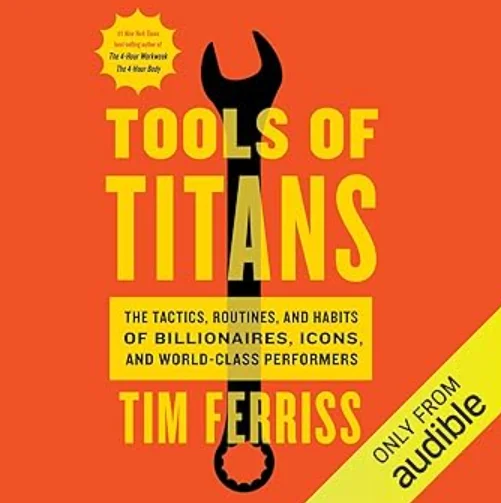
- Rating: 4.6/5 (11,870 ratings)
On his well-known business podcast, The Tim Ferriss Show, Tim Ferriss interviews an array of guests, including famous actors, legendary athletes, pioneering scientists, and prominent business leaders.
In Tools of Titans, Ferriss meticulously distills and synthesizes the core habits, strategies, and routines of these accomplished individuals. Ferriss ignores vague platitudes about effort and attitude, choosing instead to focus on real-world, actionable techniques he’s learned from guests on his show. In Tools of Titans, Ferriss vividly paints a picture of how the most successful people’s daily routines, mindset, and lifestyle habits have played a pivotal role in their accomplishments.
Thus, this book not only serves as a source of inspiration but also provides readers with practical strategies. It also offers an exclusive glimpse into the operational principles behind the success of the world’s most influential figures.
6. Rework by Jason Fried and David Heinemeier Hansson
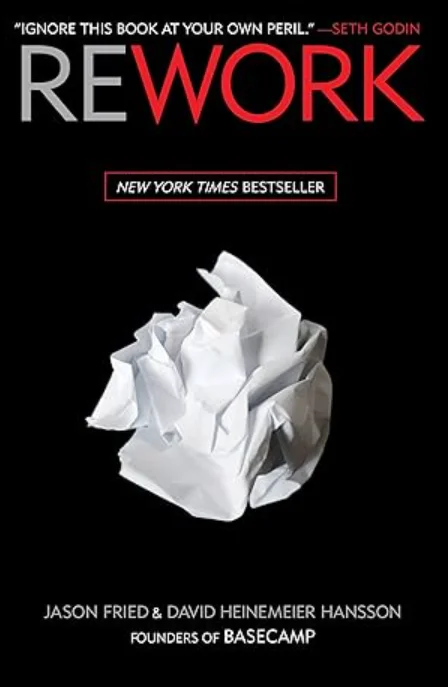
- Rating: 4.5/5 ( 11,047 ratings)
Fried and Hanson are both tech-savvy entrepreneurs who offer invaluable advice for business owners who might be experts in the field but are beginners to entrepreneurship.
The Rework book is considered a New York Times bestseller. In it, Fried and Hanson show a variety of low-cost strategies for growing a business. They provide lessons on boosting productivity, avoiding overplanning, and gaining exposure without excessive startup spending.
The essence of ‘Rework’ lies in its concise format, with each topic covered in just a few pages. This allows readers to jump into any section without following a sequential order, making it an essential resource for modern entrepreneurs seeking practical advice and inspiration.
7. Start with Why by Simon Sinek
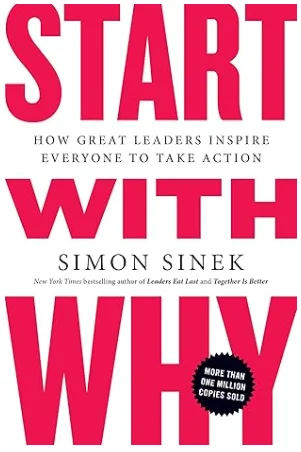
- Rating: 4.9/5 (32 ratings)
In the book Start with Why, author and motivational speaker Simon Sinek studies the lives of influential leaders like Martin Luther King and Steve Jobs. He seeks to identify a common reason behind their success, despite their different aspirations and goals.
In the book’s conclusion, the author emphasizes that great leaders ask why. Why do customers prefer certain brands? Why are some leaders more trusted and not others? Why do companies fail? These leaders try to understand the reasons behind these questions and work hard to find the answers. Sinek is based on various real-life examples to craft a clear vision of what it takes to lead and inspire others.
8. Deep Work by Cal Newport
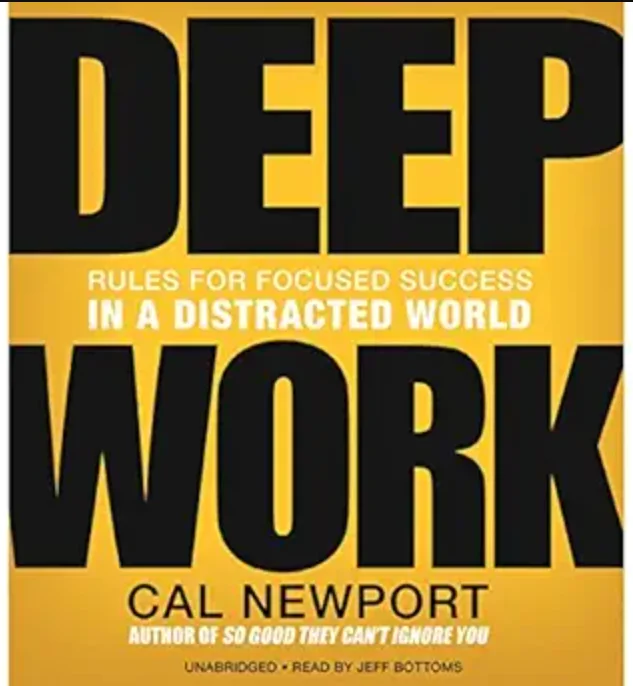
- Rating: 4.6/5 (32,339 ratings)
Distraction is a common issue which affects many people’s ability to focus and stay productive. In Deep Work book, professor of computer science Cal Newport shares his deep insights on how to achieve deep focus on cognitively demanding tasks in a world filled with distractions.
Newport believes that the ability to focus without distraction is not an innate human ability. It’s a skill that must be learned, and practiced. Through Deep Work, Newport presents his personal training regimen, consisting of four essential rules designed to foster deep focus and establish productive habits.
By regarding distraction as an opportunity rather than a burden, Newport offers invaluable advice to anyone looking to enhance their focus and productivity.
9. Radical Candor by Kim Scott
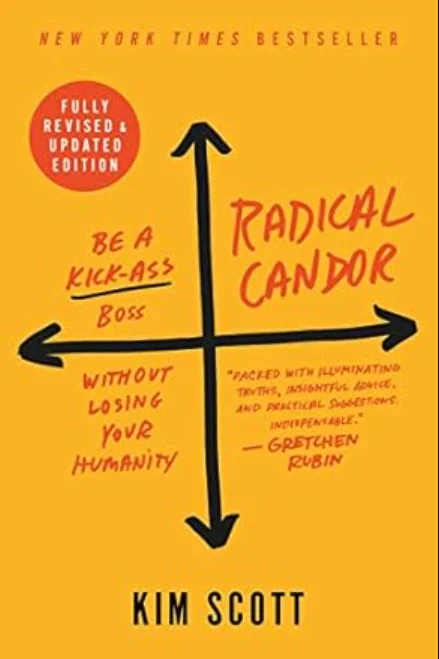
- Rating: 4.5/5 (451 ratings)
In Radical Candor, Kim Scott emphasizes the dual importance of caring personally about team members while challenging them directly. Effective leadership involves providing specific, sincere praise (caring personally) and kind, clear criticism (challenging directly). By promoting a culture of collaboration, this approach strengthens workplace relationships.
The core principle of Radical Candor is to “care personally” while “challenging directly,” creating a balance between empathy and clear, constructive feedback. The goal is to show leaders really care about their team members and are not afraid to provide direct feedback when necessary.
By doing so, managers can build a culture of trust and respect, allowing employees to feel valued and understood.
10. The Hard Thing About Hard Things by Ben Horowitz
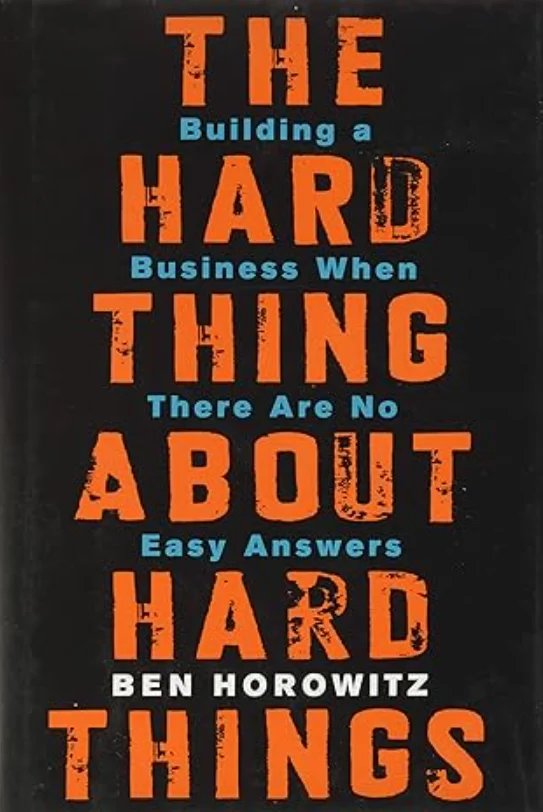
- Rating: 4.6/5 ( 14,240 ratings)
Ben Horowitz is an investor, entrepreneur, and co-founder of the venture capital company Andreessen Horowitz. In The Hard Thing About Hard Things, he learns from his own experience starting a business to advise anyone looking to become a successful entrepreneur.
Horowitz delves into the complexities and challenges of leading a company, acknowledging from the outset that there is no perfect business. He shares candid tales from his experience at the helm of billion-dollar corporations, detailing the critical decisions and catastrophic mistakes that shaped his journey. This honesty offers readers a realistic view of their challenges and the resilience required to navigate them with a great team.
Horowitz also provides the mindset and tactics necessary for surviving the tumultuous world of entrepreneurship. He introduces concepts like the Peacetime vs. Wartime CEO, emphasizes the importance of facing hard decisions head-on, and advocates for a company culture that prioritizes people, products, and profits. These lessons make “The Hard Thing About Hard Things” a must-read for entrepreneurs committed to making their mark.
11. Company of One by Paul Jarvis
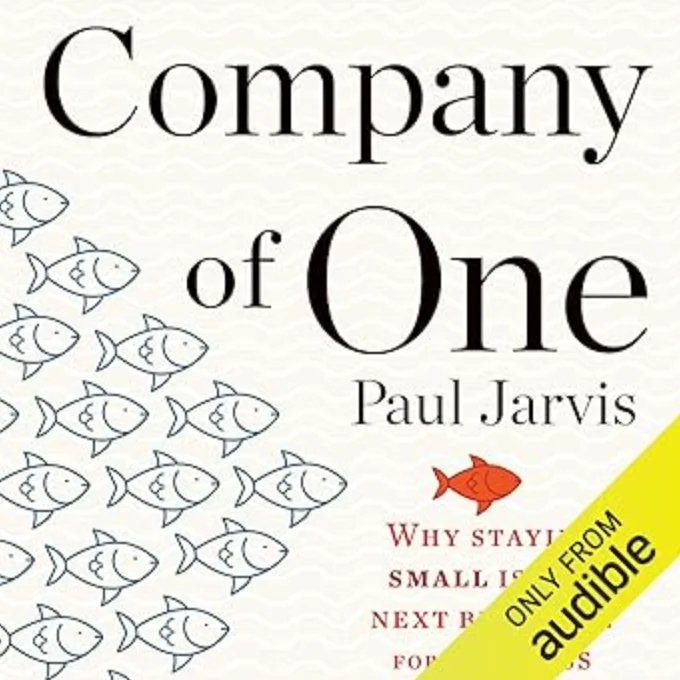
- Rating: 4.5/5 (1,649 ratings)
Company of One by Paul Jarvis is considered a thought-provoking book that overcomes the conventional understanding of business growth. Jarvis, a successful solopreneur, advocates for the idea that staying small can be more fulfilling and sustainable than scaling up.
One of the key benefits of staying small, according to Jarvis, is the flexibility and freedom it offers. Small businesses allow for greater flexibility in work hours and the ability to pursue personal interests. Without the layers of hierarchy and office politics, small businesses can operate more efficiently and make quicker decisions.
This efficiency not only leads to better business outcomes but also contributes to a more balanced life, reducing stress and increasing overall happiness. Jarvis provides practical advice on setting up a business that matches personal values, managing revenue, maintaining client relationships, and handling crises.
For those interested in practical advice and actionable insights for running a small business, “Company of One” is a valuable read.
12. The Startup Owner’s Manual by Steve Blank and Bob Dorf
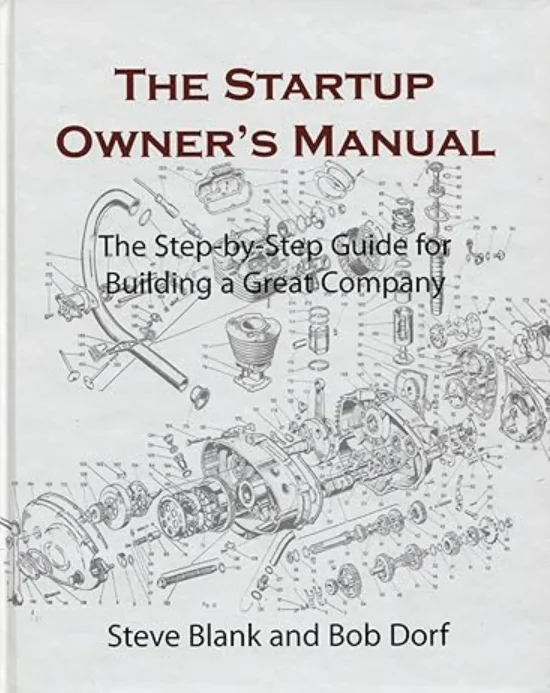
- Rating: 4.5/5 (910 ratings)
The Startup Owner’s Manual by Steve Blank and Bob Dorf is a helpful book for startup owners that focuses on customer development.
This includes helping you to identify your audience and explore strategies to retain and grow your customer base as you acquire it. They detail the customer development process that they have used and recommend to help shape your business idea and turn it into reality. Additionally, they share information about the “9 deadly sins” that can significantly reduce your chances of success.
Despite its publication in 2012, this book has remained remarkably pertinent, deserving its inclusion among the top startup books in 2025.
13. Atomic Habits by James Clear
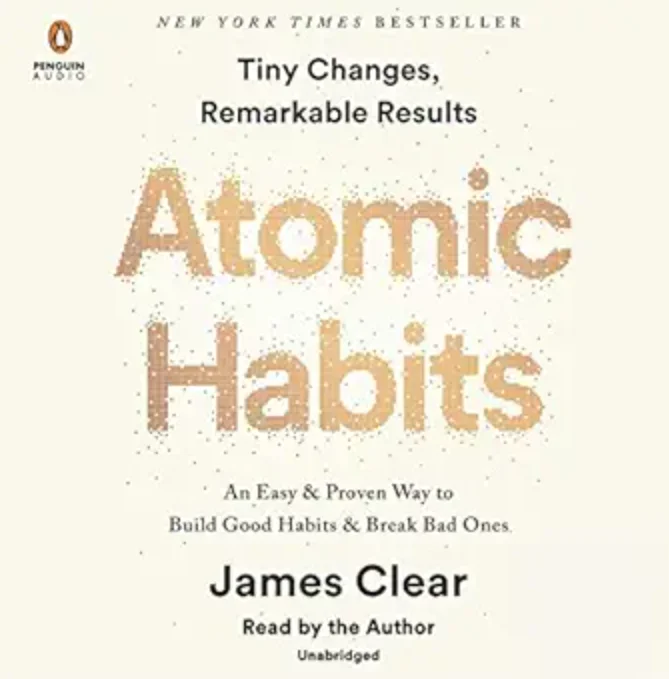
- Rating: 4.8/5 ( 130,351 ratings)
Atomic Habits explores the impact of small habits on our personal and professional growth.
One of the principal concepts in ‘Atomic Habits’ is to concentrate on the small improvement. Although the impact of a 1% improvement per day may appear negligible at first, Clear (the author of this book) argues that small changes can lead to significant results over time. In the case of habits, thinking small creates the biggest results.
As such, Clear provides strategies for effective habit formation, including breaking bad habits and developing good ones. He shares inspiring stories of people who have used his strategies to build positive habits, from Olympic gold medalists and business leaders to stand-up comedians. Atomic Habits offers entrepreneurs with great inspiration, as well as practical guides to surpassing their bad habits.
14. The E-Myth Revisited by Michael E. Gerber
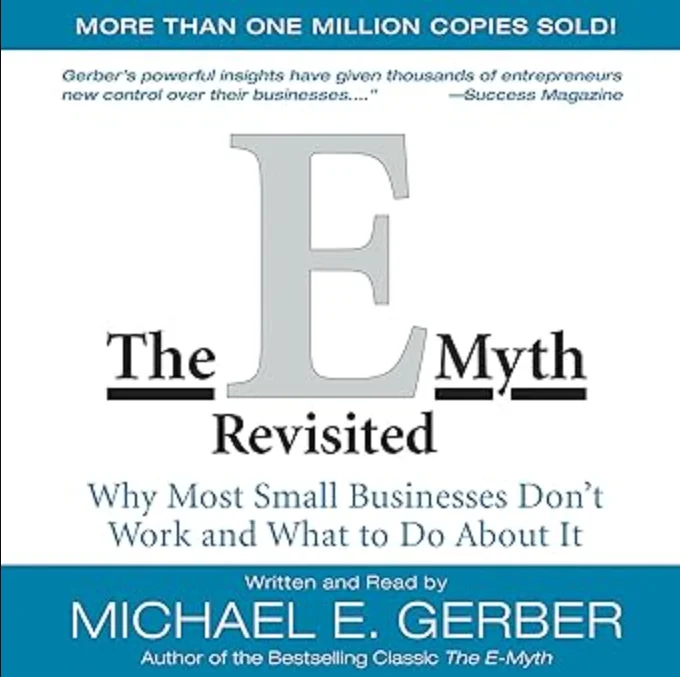
- Rating: 4.7/5 (11,906 ratings)
Michael E. Gerber is the founder of the business skills training company Michael E. Gerber Companies in California. In The E-Myth Revisited, Gerber explores the reasons why 80% of small businesses fail, and provides practical and insightful strategies on how to make sure your business isn’t among them.
This book tackles the myth that people launching startups with technical business understanding are entrepreneurs. Author Michael Gerber analyzes some business assumptions, sets proper expectations, and debunks common misconceptions about starting a small business. The ultimate goal is for readers to become real entrepreneurs who succeed independently.
15. Thinking, Fast and Slow by Daniel Kahneman
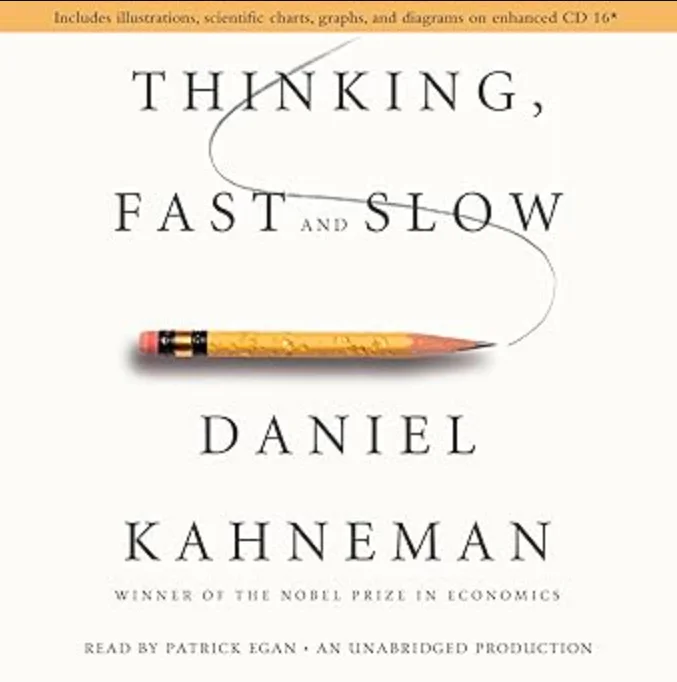
- Rating: 4.6/5 ( 44,096 ratings)
Daniel Kahneman, a psychologist and Nobel Prize-winning economist, is known for his huge contributions to the psychology of judgment and decision-making. In his Thinking, Fast and Slow book, he provides an in-depth analysis of how two distinct mental systems, including intuition, which operates quickly, and slow thinking work together to shape judgments and decision-making processes.
As a leading expert in behavioral economics, Kahneman delves into how stress can significantly impact our decision-making processes. He also explores how confirmation bias which is the tendency to search for or interpret information in a way confirming our preexisting beliefs. This bias can lead us to draw quick and often incorrect conclusions.
Therefore, Thinking, Fast and Slow is a really great book for merchants seeking to enhance their decision-making capabilities and for marketers aiming to gain insight into consumer decision-making processes.
Successful people are readers!
The path from an unknown to a million-dollar business is normally filled with difficulties and challenges. It requires lots of work, and it’s not something that happens overnight. Whether that is an online or offline business, your first stage on the market is always a daunting task with a steep learning curve.
If you’re looking for some informed recommendations on which books on starting and running a business to consider, I hope this post can be a useful reference for you.
Thanks for reading!
Watch more: The Top 10 Marketing Books and Their Main Points





